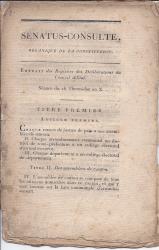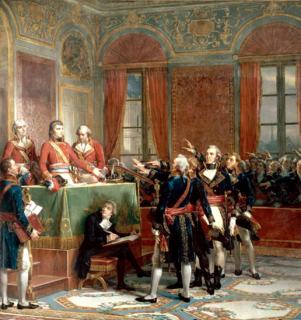
Approval voting is a single-winner electoral system where each voter may select ("approve") any number of candidates. The winner is the most-approved candidate.
Plurality voting is an electoral system in which each voter is allowed to vote for only one candidate, and the candidate who polls the most among their counterparts is elected. In a system based on single-member districts, it may be called first-past-the-post (FPTP), single-choice voting, simple plurality or relative/simple majority. In a system based on multi-member districts, it may be referred to as winner-takes-all or bloc voting. The system is often used to elect members of a legislative assembly or executive officers. It is the most common form of the system, and is used in most elections in the United States, the lower house in India, most elections in the United Kingdom, and Canada.

The two-round system is a voting method used to elect a single winner, where the voter casts a single vote for their chosen candidate. However, if no candidate receives the required number of votes, then those candidates having less than a certain proportion of the votes, or all but the two candidates receiving the most votes, are eliminated, and a second round of voting is held.
The single transferable vote (STV) is a voting system designed to achieve proportional representation through ranked voting in multi-seat organizations or constituencies. Under STV, an elector (voter) has a single vote that is initially allocated to their most preferred candidate. Votes are totalled and a quota derived. If their candidate achieves quota, he/she is elected and in some STV systems any surplus vote is transferred to other candidates in proportion to the voters' stated preferences. If more candidates than seats remain, the bottom candidate is eliminated with his/her votes being transferred to other candidates as determined by the voters' stated preferences. These elections and eliminations, and vote transfers if applicable, continue until there are only as many candidates as there are unfilled seats. The specific method of transferring votes varies in different systems.

Voting is a method for a group, such as a meeting or an electorate, in order to make a collective decision or express an opinion, usually following discussions, debates or election campaigns. Democracies elect holders of high office by voting. Residents of a place represented by an elected official are called "constituents", and those constituents who cast a ballot for their chosen candidate are called "voters". There are different systems for collecting votes.
A ballot is a device used to cast votes in an election, and may be a piece of paper or a small ball used in secret voting. It was originally a small ball used to record decisions made by voters.

A first-past-the-post electoral system is one in which voters indicate on a ballot the candidate of their choice, and the candidate who receives the most votes wins. This is sometimes described as winner takes all. First-past-the-post voting is a plurality voting method. FPTP is a common, but not universal, feature of electoral systems with single-member electoral divisions, and is practiced in close to one third of countries. Notable examples include Canada, India, the United Kingdom, and the United States, as well as most of their current or former colonies and protectorates.
The incumbent is the current holder of an office. This term is usually used in reference to elections, in which races can often be defined as being between an incumbent and non-incumbent(s). For example, in the Hungarian presidential election, 2017, János Áder was the incumbent, because he had been the president in the term before the term for which the election sought to determine the president. A race without an incumbent is referred to as an open seat.
Electoral fraud, sometimes referred to as election fraud, election manipulation or vote rigging, is illegal interference with the process of an election, either by increasing the vote share of the favored candidate, depressing the vote share of the rival candidates, or both. What exactly constitutes electoral fraud varies from country to country.

The League of Women Voters (LWV) is an American civic organization that was formed to help women take a larger role in public affairs after they won the right to vote. It was founded in 1920 to support the new women suffrage rights and was a merger of National Council of Women Voters, founded by Emma Smith DeVoe, and National American Woman Suffrage Association, led by Carrie Chapman Catt, approximately six months before the Nineteenth Amendment to the United States Constitution gave women the right to vote. The League of Women Voters began as a "mighty political experiment" aimed to help newly enfranchised women exercise their responsibilities as voters. Originally, only women could join the league; but in 1973 the charter was modified to include men. LWV operates at the local, state, and national level, with over 1,000 local and 50 state leagues, and one territory league in the U.S. Virgin Islands.

Voter turnout is the percentage of eligible voters who cast a ballot in an election. Eligibility varies by country, and the voting-eligible population should not be confused with the total adult population. Age and citizenship status are often among the criteria used to determine eligibility, but some countries further restrict eligibility based on sex, race, or religion.
Political party strength in U.S. states refers to the level of representation of the various political parties of the U.S. in each statewide elective office providing legislators to the state and to the U.S. Congress and electing the executives at the state and national level.

Elections in the United States are held for government officials at the federal, state, and local levels. At the federal level, the nation's head of state, the President, is elected indirectly by the people of each state, through an Electoral College. Today, these electors almost always vote with the popular vote of their state. All members of the federal legislature, the Congress, are directly elected by the people of each state. There are many elected offices at state level, each state having at least an elective Governor and legislature. There are also elected offices at the local level, in counties, cities, towns, townships, boroughs, and villages. According to a study by political scientist Jennifer Lawless, there were 519,682 elected officials in the United States as of 2012.
Voter registration is the requirement that a person otherwise eligible to vote register on an electoral roll before they will be entitled or permitted to vote. Such enrollment may be automatic or may require application being made by the eligible voter. The rules governing registration vary between jurisdictions. Some jurisdictions have "election day registration" and others do not require registration, or may require production of evidence of entitlement to vote at time of voting. In some jurisdictions registration by those of voting age is compulsory, while in most it is optional. In jurisdictions where registration is voluntary, an effort may be made to encourage persons otherwise eligible to vote to register, in what is called as a voter registration drive.

Voter suppression is a strategy used to influence the outcome of an election by discouraging or preventing specific groups of people from voting. It is distinguished from political campaigning in that campaigning attempts to change likely voting behavior by changing the opinions of potential voters through persuasion and organization. Voter suppression, instead, attempts to reduce the number of voters who might vote against a candidate or proposition.

Philippine elections are of several types. The president, vice-president, and the senators are elected for a six-year term, while the members of the House of Representatives, governors, vice-governors, members of the Sangguniang Panlalawigan, mayors, vice-mayors, members of the Sangguniang Panlungsod/members of the Sangguniang Bayan, barangay officials, and the members of the Sangguniang Kabataan are elected to serve for a three-year term.

In voting, a ballot is considered spoilt, spoiled, void, null, informal, invalid or stray if a law declares or an election authority determines that it is invalid and thus not included in the vote count. This may occur accidentally or deliberately. The total number of spoilt votes in a United States election has been called the residual vote. In Australia, such votes are generally referred to as informal votes, and in Canada they are referred to as rejected votes.

The Indian general election, 2014 was held to constitute the 16th Lok Sabha, electing members of parliament for all 543 parliamentary constituencies. Running in nine phases from 7 April to 12 May 2014, it was the longest election in the country's history. According to the Election Commission of India, 814.5 million people were eligible to vote, with an increase of 100 million voters since the last general election in 2009, making it the largest ever election in the world. Around 23.1 million or 2.7% of the total eligible voters were aged 18–19 years. A total of 8,251 candidates contested for the 543 Lok Sabha seats. The average election turnout over all nine phases was around 66.38%, the highest ever in the history of Indian general elections.
Free Voters in Germany may belong to an association of people which participates in an election without having the status of a registered political party. Usually it involves a locally organized group of voters in the form of a registered association (eV). In most cases, Free Voters campaign only at the local-government level, standing for city councils and for mayoralties. Free Voters tend to achieve their most successful electoral results in rural areas of southern Germany, appealing most to conservative voters who prefer local decisions to party politics. Free Voter groups are active in all German states.
Instant-runoff voting (IRV) is a type of ranked preferential voting method used in single-seat elections with more than two candidates. Instead of indicating support for only one candidate, voters in IRV elections can rank the candidates in order of preference. Ballots are initially counted for each voter's top choice. If a candidate has more than half of the vote based on first-choices, that candidate wins. If not, then the candidate with the fewest votes is eliminated. The voters who selected the defeated candidate as a first choice then have their votes added to the totals of their next choice. This process continues until a candidate has more than half of the votes. When the field is reduced to two, it has become an "instant runoff" that allows a comparison of the top two candidates head-to-head.












